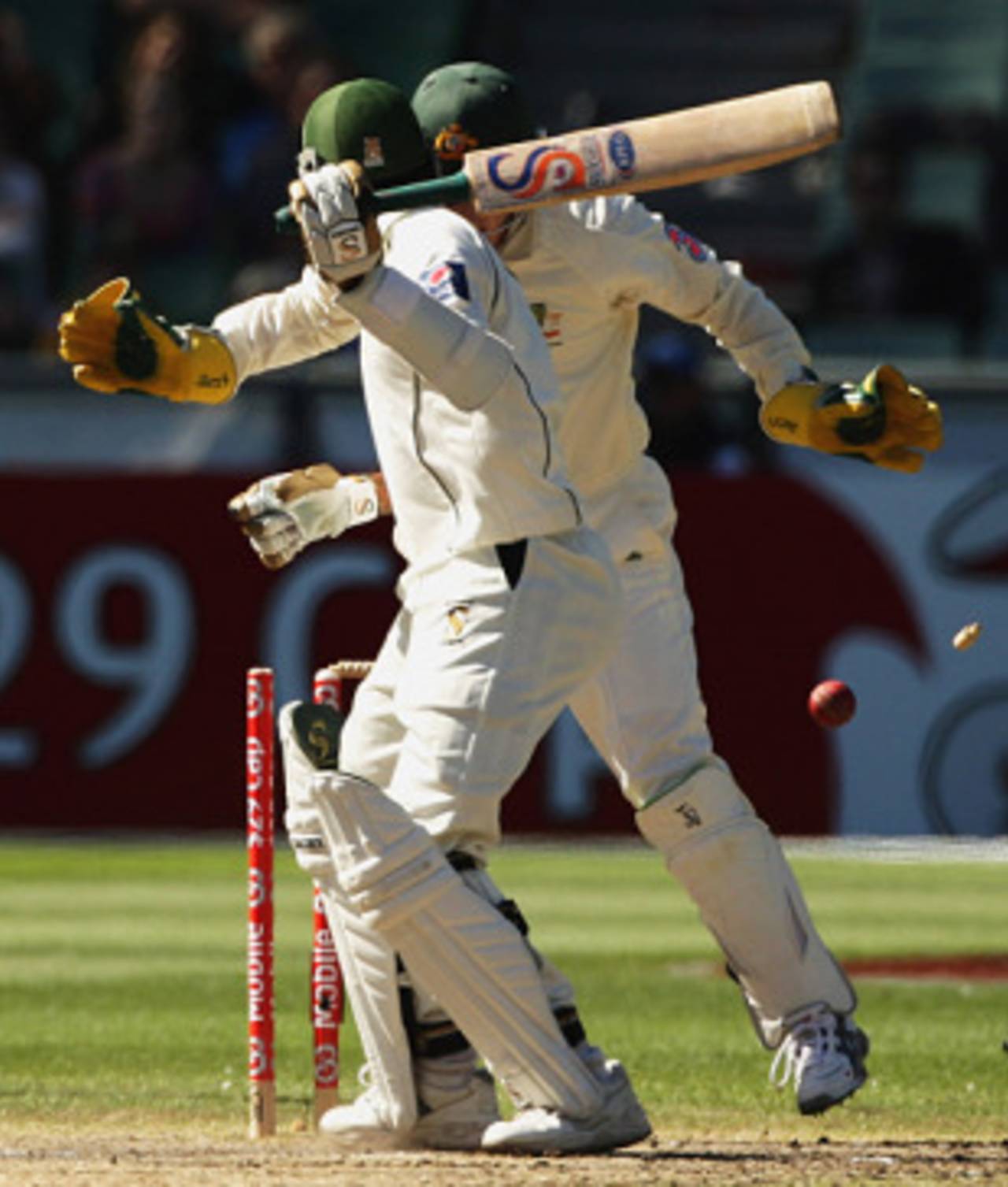Over the course of five days at the MCG, one truth about Pakistan gradually emerged from the strange haze of timidity and gloom and the starburst of youth: the fallout of 2008, their Year of No Tests, is not to be underestimated. By the end of the Sydney Test next week, Pakistan will
have played 18 Tests in three years. Australia will have played 32 in the same period by then. And only one Pakistani - Kamran Akmal - has actually played in every one of those 18 Tests.
Test cricket requires strange ways of men. It has its own disciplines and rhythms and it isn't for everyone. Patience is needed, but not at the expense of alertness; lethargy is loathed but not always punished, where sometimes rushing things is. Sensing and riding the flow of a Test, of a
session, of a period or situation is critical and it comes only over time. But if, like Salman Butt, Imran Farhat, Faisal Iqbal, Mohammad Asif and to an extent even Mohammad Yousuf, you have not been playing Tests regularly, these things are missed. And it hurts. The side is not inexperienced, just the development of many has been stunted from a lack of Test cricket.
Pakistan had good periods in Melbourne, good passages, mostly on the third and fourth day. But as happened in Sri Lanka and New Zealand earlier this year, those passages cannot be sustained. Good sessions are followed by flat ones, other crucial sessions they start off too slowly, concentration levels are poor at the start of sessions.
Catches are dropped at stages when they can be least afforded, runs are given away cheaply just after wickets are picked up, wickets are thrown away just when batsmen are set: recognising the importance of what is happening when you are doing well and why it is happening is as critical to sustaining it as anything else. Not being able to do it is Pakistan's
misery.
Batsmen have been hit particularly hard by this intermittency of Tests. Numbers are not needed, only memory: how many batsmen were set in this Test, and in Tests against New Zealand and Sri Lanka when dismissed? The batting gods do not forgive that sin readily. In their last 14 Test
innings now, Pakistan have crossed 350 - a basic minimum Test score - only twice. Younis Khan is no magic wand either for he was present on six of those occasions.
Admittedly Pakistan teams - even winning sides - have always reacted to their own, inconsistent rhythms and moods, session to session, day to day, but usually they have had men who can defy everything and win a Test from nothing. No such blessing is at hand just currently. The lack of Tests is hurting; coupled with the many basic issues Pakistan have always had -
catching, slack running, fielding in general - it hurts doubly hard.
But if you're an optimist - and there are more of them per square mile than there ought to be in Pakistan - then the way to look at a tenth successive defeat against Australia would be to suggest that despite all this they managed to push Australia on some days. Depending on how you rate a nine-wicket defeat, a 170-run loss is the closest in terms of result between the two sides for five Tests and some years probably. At a stretch, they were still in with a shout as the final day dawned and certainly the captain thought so.
There was no humiliation here - though avoiding that is hardly an ambition - even if Australia declared twice. And it took, Ricky Ponting said later, the best bowling performance from an Australian side since the days of McGrath and Warne to win it.
There remains hope for Sydney. Something needs to be done about the fielding and batting, though little can be done on a tour. They will hope that the young can maintain their verve. Every day that the Test developed it became clearer too the folly of Umar Gul's omission and Danish
Kaneria's absence was felt. That is the smaller picture and similar stuff could probably be said for just about every loss Pakistan have had for a while, maybe ever. The bigger picture is that they go to Sydney with at least one more Test's experience than they came into Melbourne with.
Osman Samiuddin is Pakistan editor of Cricinfo
